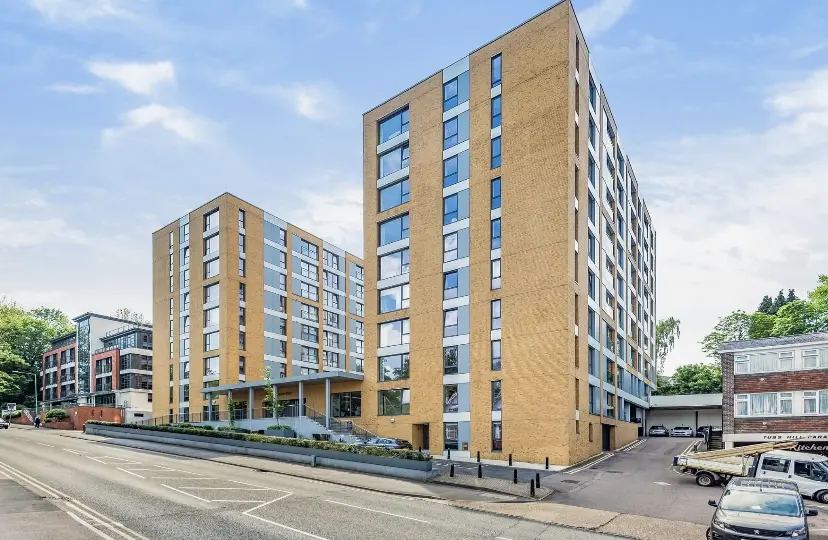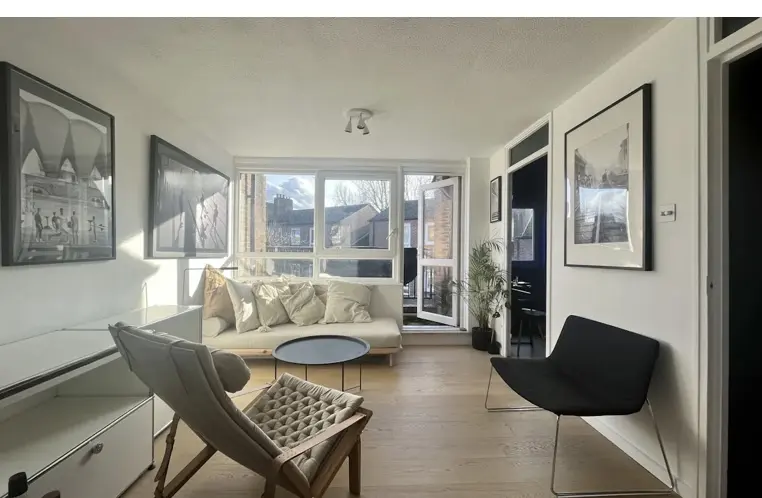
Modern 1-Bed Flat for Sale | Private Balcony & Parking | Near Sevenoaks Station
Sevenoaks TN13 1FD, UK
£325,000
The UK has strict laws protecting tenants, such as the Landlord and Tenant Act 1985 and the Housing Act 1988. These laws require landlords to maintain the property to a minimum standard to ensure there is no hazard to the health and safety of the occupants. This also covers deposit protection and sets boundaries on how eviction practices should be applied fairly.
Tip: It is the landlord's legal obligation to keep the property in a safe and habitable state. They are supposed to get any major issues related to heating, plumbing, or structural damage repaired in a timely manner. You may report any deteriorating condition of the property to your local council's environmental health department.
Keep a Written Record of All Communication
It is important to keep a written record of every communication you have with the landlord. This will help protect you when disputes arise. If you are requesting repairs or complaining about your living conditions, do this in writing—letter or email—and date the request.
If your landlord refuses to respond, escalate the matter and write a formal letter or email, quoting relevant UK laws or the sections of your tenancy agreement.
Know Your Tenancy Agreement
Your tenancy agreement is your first line of defence. Most tenants in London have what is called an Assured Shorthold Tenancy, or AST—an agreement that provides fairly good security. Read through the agreement to see exactly what your landlord must do and what you must do.
Tip: If your landlord is not complying with the agreement, for example, if your deposit is not returned or repair works are not done, then they are in breach of contract. You can take it up with a housing tribunal or consult a lawyer.
Contact Your Local Council or Citizens Advice Bureau
London councils can take action if landlords are not fulfilling their responsibilities. If your landlord does not handle major problems, such as a leaking roof or a faulty boiler, you may report them to your council. This could involve the council inspecting the property and issuing an improvement notice to the landlord, requiring them to take action.
Tip: You might also like to seek free advice and support from your Citizens Advice Bureau or Shelter UK, a charity specialising in housing issues and tenancy rights.
Seek Mediation or Legal Help
If your landlord is being unreasonable, or if you are being harassed, then sometimes mediation can resolve issues without going to court. Most London boroughs will offer mediation free of charge. In extreme cases, you may also be entitled to legal aid if you wish to take action through the courts.
Tip: London renters can apply for legal aid through the Legal Aid Agency, especially if your landlord is harassing you or illegally evicting you.
What to Do When Facing an Eviction in London
Evictions in the UK are highly regulated, and landlords must follow due process. Here's what you need to do in the event of an eviction if you still have not found a new place:
Check whether this is a legal eviction. In London, landlords must follow a complex legal process to remove a tenant from a property. Landlords can only evict most tenants with an Assured Shorthold Tenancy under either Section 21 (no-fault eviction) or Section 8 (eviction for breach of contract). The landlord must serve you a notice period—usually two months in the case of Section 21—and is obliged to seek a court order if you fail to vacate.
Tip: Always check whether the Section 21 or Section 8 notice served is valid. If it is not valid—for example, if the landlord failed to protect your deposit in a government-approved scheme—you may challenge the eviction in court.
Bargain for More Time
If you haven't viewed any new properties yet, inform your landlord and negotiate for a little more time. They are not under any obligation to agree to this, but if you have been a good tenant, some may accommodate you. You can offer to pay one extra month's rent if that gives you a little more time.
Tip: When possible, make them an offer they can't refuse, such as leaving the property in great condition or catching up on any arrears.
Contact Your Local Council for Assistance
If you find yourself homeless due to eviction, London councils have a duty to help you. You can approach them by applying to the council as being homeless, and they will assess your situation. Sometimes, in such cases, they might provide emergency accommodation or assist you in finding another place to stay.
Tip: Contact your council’s housing department as soon as possible—under the Homelessness Reduction Act 2017, they must work to prevent your homelessness, even if you’re not eligible for social housing.
Find Temporary Housing
If you are facing imminent eviction and do not have another place to live, then you will need to find temporary housing. Here are some options to consider:
Short lets via websites like Spareroom or OpenRent.
There are several charities and organisations that assist London renters facing eviction or financial hardship. Shelter UK, Crisis, and Turn2us are important resources for rental assistance or emergency housing.
Tip: These organisations might also help you apply for grants or housing benefits, particularly if you've recently lost your job and are experiencing financial constraints due to the eviction.
See a Lawyer to Delay the Eviction
If your landlord is seeking to forcibly remove you in a heavy-handed or improper manner, or without due notice being given, you can go to court to contest the eviction. Advice available from organisations such as Shelter UK or Citizens Advice will help delay the eviction and give you extra time to seek new housing.
Tip: If you think you are in danger of illegal eviction—for example, if your landlord is trying to 'lock you out' or harass you—contact the police or your council immediately. A landlord who tries to evict without following the proper legal proceedings is committing a criminal offence.
Closing Thoughts: Stay Ahead and Reach Out
Resources are available in London to help you overcome a bad landlord or deal with the threat of eviction. You can increase your chances of finding a resolution or acquiring alternative housing in time by staying properly informed about your rights, documenting everything, and seeking assistance early. Remember, the key to staying in control of your situation is to be proactive—whether it’s negotiating with the landlord, getting help from the council, or contesting the eviction.
Disclaimer
This article is for general informational purposes only and does not constitute legal, financial, or professional advice. While we strive to ensure accuracy, property laws, regulations, and market conditions may change over time. We do not guarantee the completeness, reliability, or current validity of the information provided. Readers should independently verify details and seek professional guidance before making any property-related decisions. We are not liable for any losses or damages resulting from reliance on this content

Sevenoaks TN13 1FD, UK
£325,000

Potier St, London SE1 4UX, UK
£394,000

